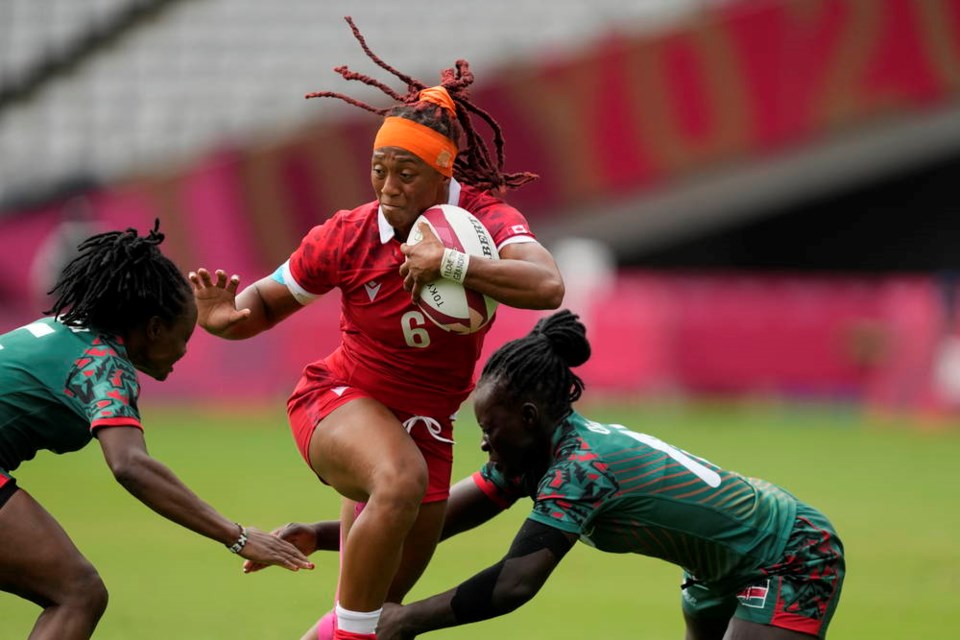The failure of the Langford-based world No. 3 women’s rugby sevens team to even get out of the pool stage must rate as the biggest shocker so far for Canada overall in the Tokyo Olympics. The only thing that could top it is if Andre De Grasse failed to make the finals of the 100 and 200 metres.
“A fairy tale would have been nice. A gold medal is why we came here. But the reality is we’ve been through so much in the last eight months and at this point it’s taken a toll. We’d be lying if we said it didn’t take a toll,” said Canadian captain Ghislaine Landry.
A players’ revolt in Langford this spring led to the departure of head coach John Tait of Mill Bay, who guided Canada to the Olympic bronze medal at Rio 2016. Mick Byrne, a well-travelled 62-year-old Australian, assumed the role of interim Canadian head coach through the Tokyo Olympics. There was also a COVID outbreak among the team this year in Langford. Then there was the controversial pre-Games media conference the team held about social issues, that had nothing to do with rugby or the reason why they are in Tokyo, that had some people questioning whether that became a self-imposed distraction. The question of focus seems a fair one, but one that the team dismisses.
“We worked harder than we ever have,” said Landry.
“We did everything we could within our power. We felt ready and were more united than we’ve ever been. It would have been amazing to come here and put together six performances we could have been proud of. Obviously, there were a couple of games where we didn’t play our best. But the pride is still there.”
There was nothing left to do but mop up Friday in the consolation round with a 45-0 win over Brazil and XX-XX victory against Keyna that must have felt far more bitter than sweet.
“A whirlwind of emotions — tough to get through and get over,” said veteran player Charity Williams.
“I’m proud of the team, proud of the girls. [The consolation round] was important for us and what we’ve been through the past year and a half. I also want to [show] the young kids at home, and those who are looking up to us, what this game is all about. I’m always inspired and proud.”
But clearly, the consolation round is not what this group came to Tokyo to accomplish.
“Everyone comes here to win. I think we saw [in the crucial upset pool loss to] Fiji, rugby is really growing,” said veteran Canadian player Elissa Alarie.
While the extra year to prepare for these delayed 2020 Olympics proved beneficial for some athletes – including bronze-medallist Emma Entzminger of Victoria and the Canadian women’s softball team and the Elk Lake-based rowers with gold and bronze – it proved a year of turmoil and upheaval for the women’s rugby sevens team. In many ways, it was a year too far.
“Obviously, it’s been a hard year for everyone,” said Alarie.
“This is a physical sport and you have to put your body on the line.”
They will do that again in Langford as they sort through the physical and emotional rubble of this year and look ahead to rebuild for Paris 2024.



